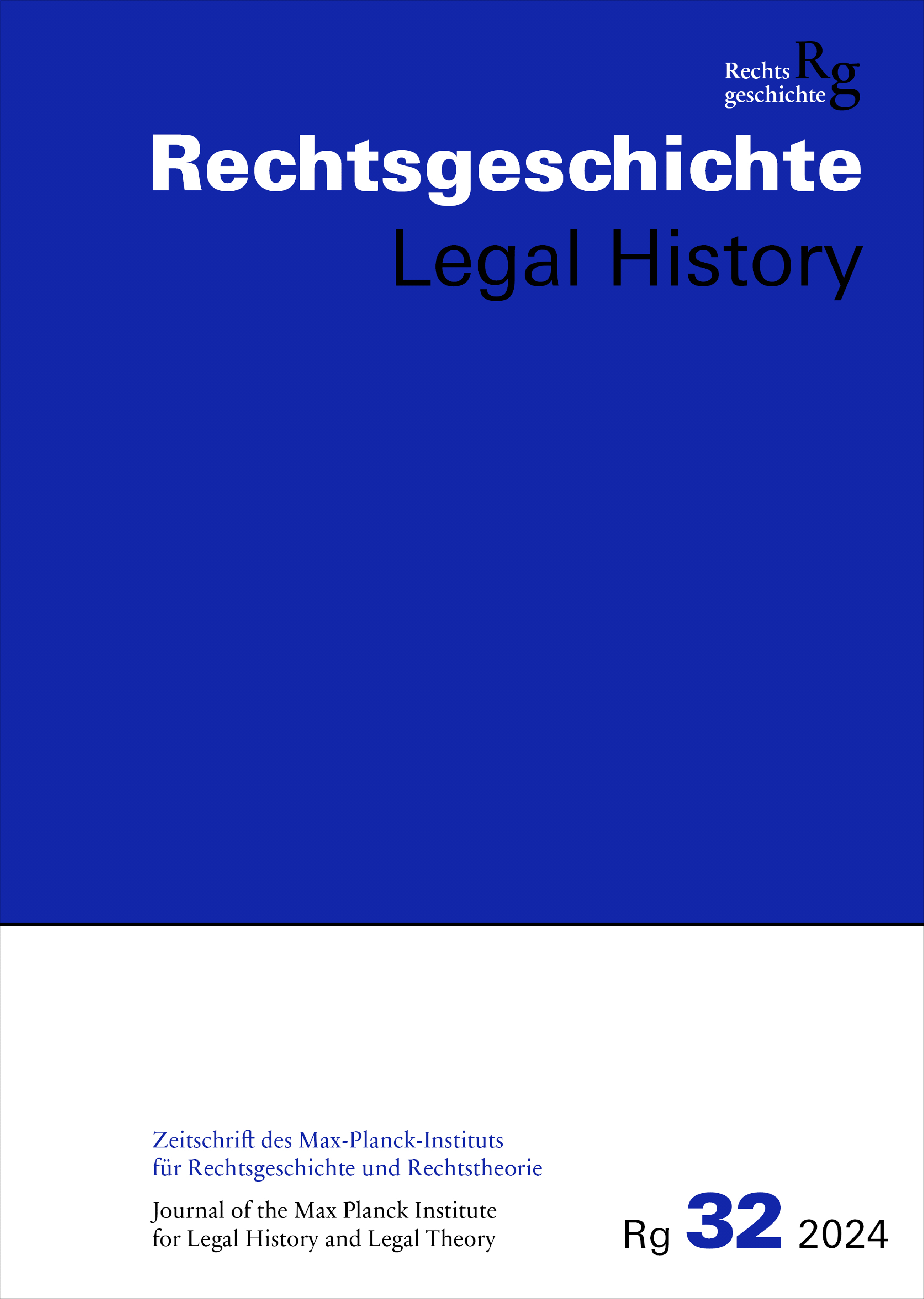Knowledge of Production of Normativity at the Imperial Aulic Council. Towards a Procedural Perspective on Early Modern Legal Reasoning
DOI:
https://doi.org/10.12946/rg32/108-143Schlagworte:
collective judging, legal reasoning, early modern period, Holy Roman Empire, Imperial Aulic CourtAbstract
Global and knowledge-historical perspectives represent a productive challenge to the statist positions which still characterise much of legal history – positions whose deficiencies have become increasingly clear in recent times. This also applies to research on the Holy Roman Empire, which dominated the map of Central Europe until 1806. This empire had two central courts, the Imperial Chamber Court (Reichskammergericht) and the Imperial Aulic Council (Reichshofrat), which have been the subject of intensive study in German legal history since the 1960s. In order to utilise the rich yields of this research in terms of global history, German historians will have to stop reconstructing the history of the Imperial Chamber Court and Imperial Aulic Council teleologically as developmental steps towards the rule of law in the modern state. The process categories frequently used in the literature on the Holy Roman Empire, such as juridification, rationalisation and professionalisation, prove to be insufficient to adequately describe knowledge of the production of normativity. What is needed is a sociology of the judicial production of norms that sees the practices of the judges in constant interaction with social normativity regimes. Using the example of the Imperial Aulic Council, the article demonstrates how organisational and social analysis can be linked successfully.
Veröffentlicht
Zitationsvorschlag
Ausgabe
Rubrik
Lizenz
Copyright (c) 2024 Autor/in

Dieses Werk steht unter der Lizenz Creative Commons Namensnennung 4.0 International.





